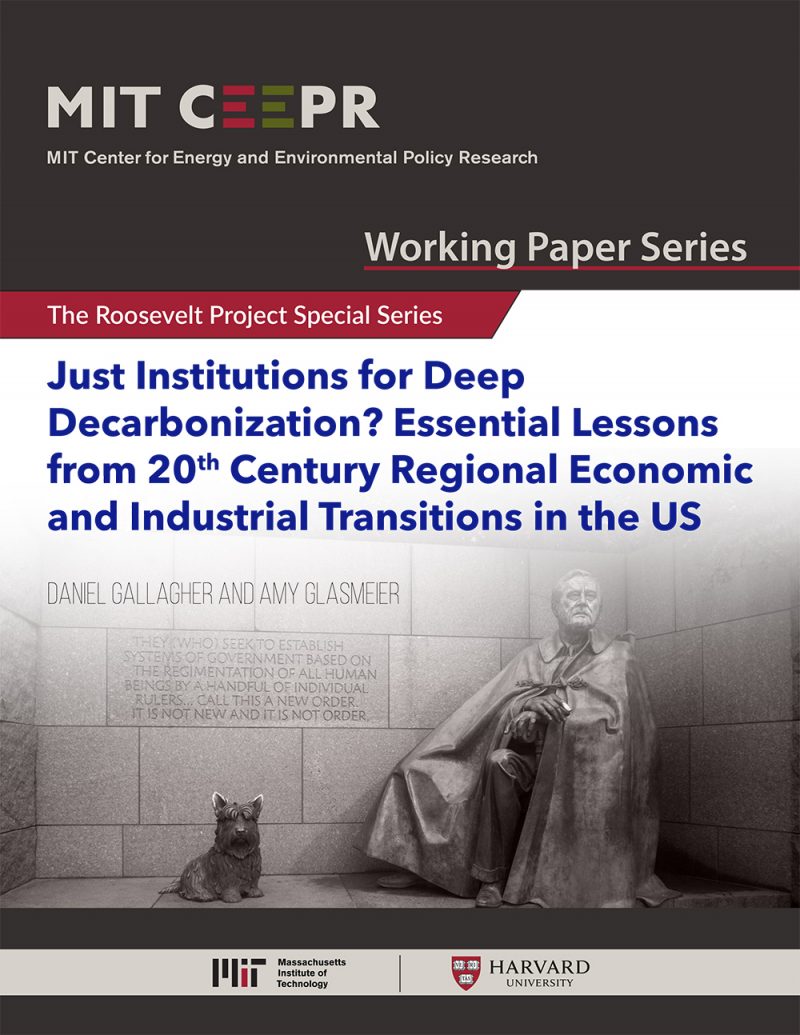Just Institutions for Deep Decarbonization? Essential Lessons from 20th Century Regional Economic and Industrial Transitions in the United States
Daniel Gallagher and Amy Glasmeier
September 2020
Deep decarbonization of existing economies may still avert the worst of catastrophic global climatic disruption. As political discourse in the United States focuses increasingly on the climate crisis, scholars, activists, and policymakers have framed the crisis as an opportunity for a sustainability transition founded on social justice and equity. Experience, however, suggests that large-scale economic transitions have costs and benefits that fall unevenly on different social groups. We respond to increasing scholarly and public attention on ambitious energy transitions by analyzing documented accounts of major regional economic transition in the U.S. throughout the twentieth century. How have federal and other institutions changed to cushion the disruptions of past regional adjustments to workers, families, and communities? How might past experiences in regional transition illuminate the way forward for more equitable processes of decarbonization? Our analysis finds evidence that past programs designed to offer assistance in transition often struggled to achieve efficacy in benefiting those most in need soon enough, for long enough, or to the degree necessary. If we do not adequately attend to institutional challenges, a transition justified in the name of the climate crisis may reproduce systemic injustices of the past. We conclude with recommendations on institutional design for policymakers and planners seeking to deliver a just transition.
Keywords: decarbonization, energy, just transition, institutions, sustainability



